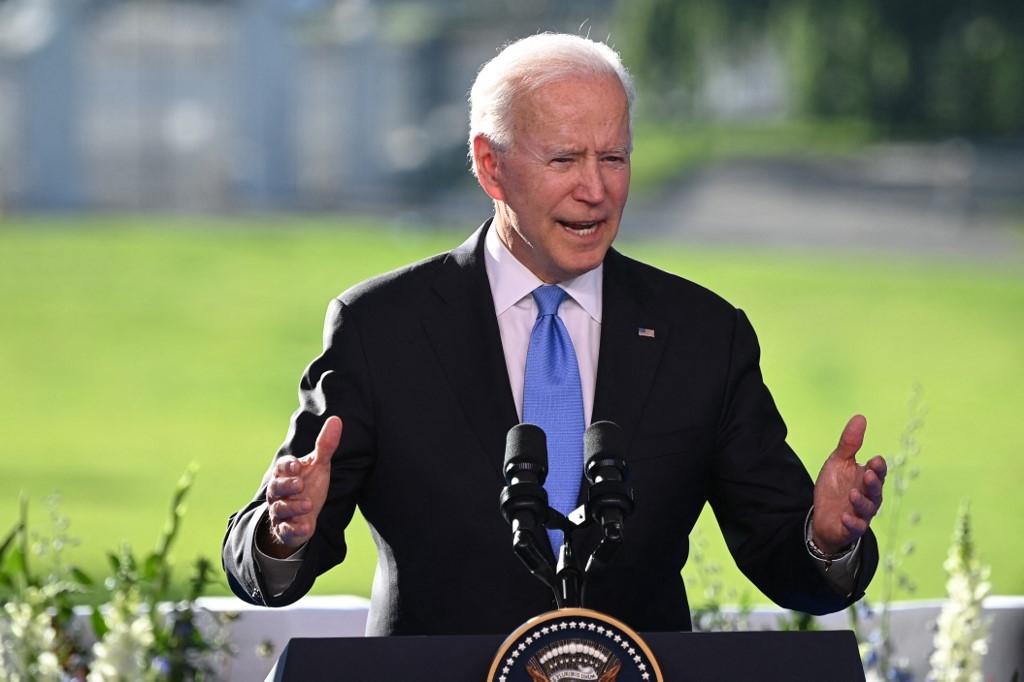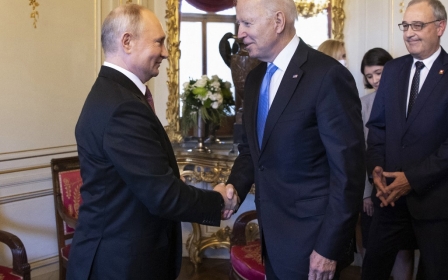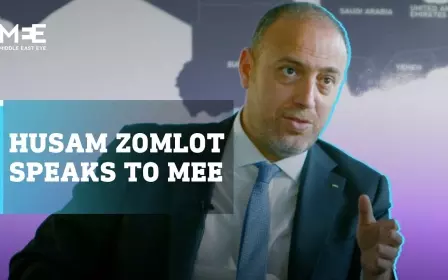Politicians, academics and Nobel laureates urge Biden to end Israeli 'oppression'

More than 680 global leaders, from politicians and Nobel laureates to leading academics and peace advocates, have called on US President Joe Biden to honour his commitments towards protecting the human rights of Palestinians.
In an open letter published earlier this week, the group called on Biden to put "human rights at the centre of US foreign policy" and to "help bring an end to Israel's institutionalised domination and oppression of the Palestinian people".
"A sustainable and just peace - for all people - will remain elusive if US policy holds to a political status quo devoid of justice and accountability," the letter read.
"Moving forward, the United States must address the root causes of the violence, which successive administrations have neglected.
"Your administration must apply concerted diplomatic pressure to help end the ever-expanding discrimination and systemic oppression and ensure accountability for Israeli authorities that violate Palestinian rights."
The 682 signatories include Israel's former Attorney General Michael Ben-Yair; former Knesset speaker Avraham Burg; former Irish President Mary Robinson; 2011 Nobel Peace Prize laureate Tawakkol Karman; Israeli academic Ilan Pappé; American professor Noam Chomsky; and a number of British MPs, among others.
Israel's bombing campaign in Gaza last month, which killed 248 Palestinians, including more than 60 children, posed an early litmus test for Biden's foreign policy and his administration's commitment to human rights and international law.
Time for 'new benchmark'
During the bombardment, the US president drew criticism from Palestine advocates and from within his own party for not calling for a ceasefire immediately.
The Biden administration also continuously affirmed Israel's "right to defend itself", while making no specific mention of the rising Palestinian death toll at the time.
Biden was also heavily criticised for declaring victory as a result of the ceasefire agreement. Since then, the White House has not spoken critically of Israel's actions, which have led to calls for investigations into war crimes by rights groups.
This week's letter comes after far-right Prime Minister Naftali Bennett was sworn into office, ending Benjamin Netanyahu's 12-year consecutive tenure as premier. It also comes after a pledge from G7 states earlier this week to "harness the power of democracy, freedom, equality, the rule of law and respect for human rights to answer the biggest questions and overcome the greatest challenges".
After Biden was elected, his administration highlighted that it would put human rights at the core of its foreign policy.
"The United States is committed to a world in which human rights are protected, their defenders are celebrated, and those who commit human rights abuses are held accountable," Secretary of State Antony Blinken said in a statement in February.
Yet rights advocates have noted that this remains to be seen on many issues, including Washington's rebuke of the International Criminal Court's probe of Israeli war crimes, the continued weapons sales to the government of Egyptian President Abdel Fattah el-Sisi, and a failure to hold Saudi Crown Prince Mohammed bin Salman accountable for the killing of journalist Jamal Khashoggi.
"Only a consistent application of a rights-centred foreign policy can signal to Israel's leaders that violations of international law will no longer go unaccounted for. Mr President, now is the time to set a new benchmark in American foreign policy that leads with justice and paves the way toward lasting peace," the letter read.
Middle East Eye propose une couverture et une analyse indépendantes et incomparables du Moyen-Orient, de l’Afrique du Nord et d’autres régions du monde. Pour en savoir plus sur la reprise de ce contenu et les frais qui s’appliquent, veuillez remplir ce formulaire [en anglais]. Pour en savoir plus sur MEE, cliquez ici [en anglais].





